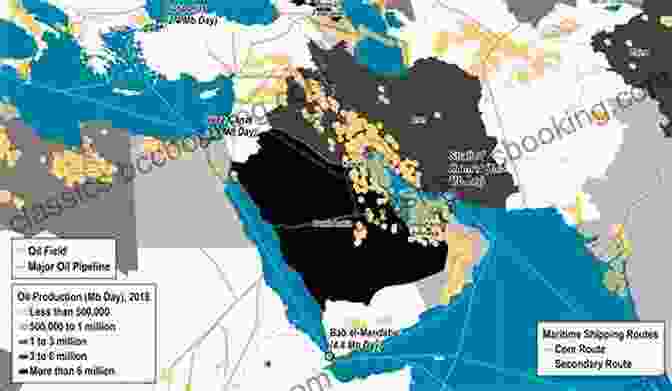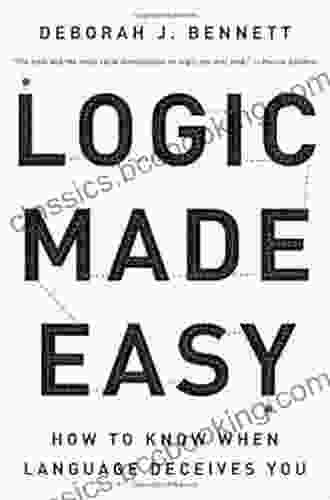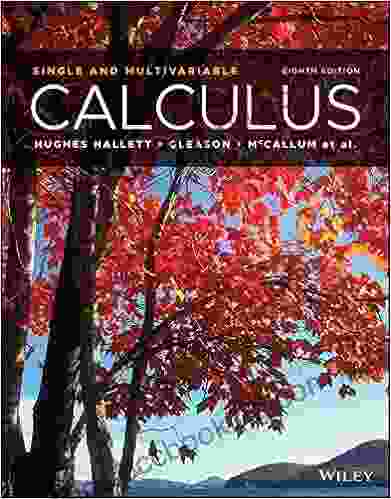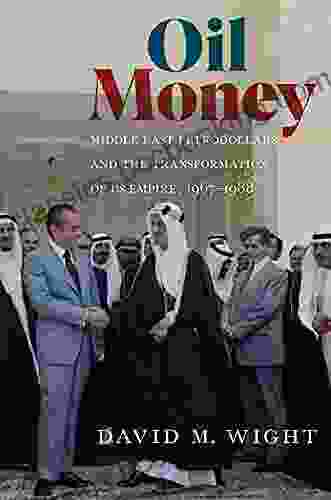Unveiling the Hidden Power: How Middle East Petrodollars Transformed the US Empire


4 out of 5
| Language | : | English |
| File size | : | 15116 KB |
| Text-to-Speech | : | Enabled |
| Screen Reader | : | Supported |
| Enhanced typesetting | : | Enabled |
| Word Wise | : | Enabled |
| Print length | : | 356 pages |
The Middle East, a region brimming with vast oil reserves, has played a pivotal role in shaping the geopolitical landscape of the 20th century. The discovery and exploitation of these resources have had a profound impact on global economies and international relations, particularly on the rise and transformation of the United States as a superpower.
This article delves into the intricate relationship between Middle East petrodollars and the transformation of the US empire from 1967 to 1988. We will explore how the influx of oil wealth from the Middle East fueled American economic growth, military expansion, and diplomatic influence, while simultaneously fueling tensions and conflicts in the region.
The Oil Boom: A Catalyst for US Economic Growth
The 1967 Arab-Israeli War marked a turning point in the global oil market. The conflict resulted in an Arab oil embargo against Western nations, including the United States, leading to a sharp increase in oil prices. This sudden surge in oil revenues created a massive inflow of petrodollars to the Middle East oil-producing countries.
The United States, as the world's largest oil consumer, was heavily impacted by the oil crisis. However, in an unexpected twist, the influx of petrodollars also became a major source of economic growth for the US.
Through investments in American banks, real estate, and industries, Middle Eastern countries recycled their oil revenues back into the US economy. This capital injection helped boost American businesses, create jobs, and fuel economic expansion.
Funding the Military-Industrial Complex
Beyond its economic impact, petrodollars also became a potent tool for American foreign policy. The Nixon administration, facing a growing Soviet threat and domestic unrest, seized the opportunity to utilize the newfound wealth from the Middle East to strengthen the US military.
Through lucrative arms deals and military assistance programs, the United States sold weapons to oil-rich Arab states, such as Saudi Arabia and the United Arab Emirates. This military spending not only expanded the American arms industry but also fostered close military ties with key Middle Eastern allies.
The military-industrial complex thus thrived on petrodollars, contributing to the rise of a powerful national security state and cementing the US's role as the world's dominant superpower.
Diplomatic Influence and Cold War Rivalry
The wealth generated by Middle Eastern oil also became a valuable diplomatic tool for the United States. By providing economic and military support to Middle Eastern countries, Washington gained significant influence over their foreign policies.
In the context of the Cold War, the US used petrodollars to counter Soviet influence in the region. It forged alliances with oil-rich Gulf states, such as Kuwait and Oman, to prevent the spread of communism and secure access to vital oil supplies.
However, this diplomatic strategy also created tensions within the Middle East, as some countries, such as Iran, resented the perceived US favoritism towards pro-Western regimes.
The Impact of the Oil Crisis: Economic and Social Challenges
The inflow of petrodollars to the Middle East had a profound impact on the region's economies and societies. The sudden wealth led to rapid modernization, urbanization, and improved living standards for many.
However, it also brought about social and economic challenges. The influx of foreign workers to fuel the oil industry strained local infrastructure and services. Economic inequality widened as a small elite reaped the benefits of the oil boom, while others faced poverty and unemployment.
Additionally, the oil wealth led to a decline in traditional sectors, such as agriculture, as workers migrated to the oil industry. This had long-term implications for the economic diversification and sustainability of Middle Eastern economies.
The Long-Term Consequences
The transformation of the US empire through Middle East petrodollars has had lasting consequences. The US military remains heavily reliant on Middle Eastern oil, which has led to a continued presence in the region.
The diplomatic alliances forged during this period have shaped the geopolitical landscape of the Middle East, with the United States playing a dominant role in regional affairs.
However, the dependency on petrodollars has also made the US vulnerable to economic and political instability in the Middle East. The 1973 oil crisis and the subsequent rise of OPEC demonstrated the power that oil-producing nations can wield in the global economy.
The relationship between Middle East petrodollars and the transformation of the US empire is a complex and multifaceted story. The influx of oil wealth fueled American economic growth, military expansion, and diplomatic influence. However, it also created tensions and challenges both in the United States and the Middle East.
Understanding this relationship is crucial for comprehending the geopolitical dynamics of the 20th century and their continued relevance today. As the world transitions to renewable energy sources, the era of petro-power may be coming to an end, but the legacy of Middle East oil will continue to shape global affairs for years to come.
4 out of 5
| Language | : | English |
| File size | : | 15116 KB |
| Text-to-Speech | : | Enabled |
| Screen Reader | : | Supported |
| Enhanced typesetting | : | Enabled |
| Word Wise | : | Enabled |
| Print length | : | 356 pages |
Do you want to contribute by writing guest posts on this blog?
Please contact us and send us a resume of previous articles that you have written.
 Book
Book Novel
Novel Page
Page Chapter
Chapter Text
Text Story
Story Genre
Genre Reader
Reader Library
Library Paperback
Paperback E-book
E-book Magazine
Magazine Newspaper
Newspaper Paragraph
Paragraph Sentence
Sentence Bookmark
Bookmark Shelf
Shelf Glossary
Glossary Bibliography
Bibliography Foreword
Foreword Preface
Preface Synopsis
Synopsis Annotation
Annotation Footnote
Footnote Manuscript
Manuscript Scroll
Scroll Codex
Codex Tome
Tome Bestseller
Bestseller Classics
Classics Library card
Library card Narrative
Narrative Biography
Biography Autobiography
Autobiography Memoir
Memoir Reference
Reference Encyclopedia
Encyclopedia David Nabhan
David Nabhan David W Anderson
David W Anderson David Straker
David Straker David Mcgriffy
David Mcgriffy David Zarefsky
David Zarefsky David Winner
David Winner David Annandale
David Annandale David Mcallister
David Mcallister David Rohde
David Rohde Daniel Pennac
Daniel Pennac Daphne Oz
Daphne Oz David L Meyer
David L Meyer David Cannadine
David Cannadine David N Blank Edelman
David N Blank Edelman David Wilber
David Wilber David F Kelly
David F Kelly David Thomson
David Thomson David Enrich
David Enrich David Kauders
David Kauders David Keyes
David Keyes
Light bulbAdvertise smarter! Our strategic ad space ensures maximum exposure. Reserve your spot today!

 Marvin HayesStories From Captain And Nurse: An Extraordinary Journey of Love, Resilience,...
Marvin HayesStories From Captain And Nurse: An Extraordinary Journey of Love, Resilience,...
 Grayson BellUnleash the Eldritch Terror: Cthulhu Remorseless: The Collected Harrison Peel...
Grayson BellUnleash the Eldritch Terror: Cthulhu Remorseless: The Collected Harrison Peel... Salman RushdieFollow ·13.3k
Salman RushdieFollow ·13.3k Joel MitchellFollow ·12.7k
Joel MitchellFollow ·12.7k Nikolai GogolFollow ·8.9k
Nikolai GogolFollow ·8.9k Willie BlairFollow ·13.3k
Willie BlairFollow ·13.3k Cameron ReedFollow ·11.4k
Cameron ReedFollow ·11.4k Christian BarnesFollow ·5k
Christian BarnesFollow ·5k Bryce FosterFollow ·14.1k
Bryce FosterFollow ·14.1k Rodney ParkerFollow ·8.7k
Rodney ParkerFollow ·8.7k

 Cameron Reed
Cameron ReedHow to Know When Language Deceives You
Unmasking the Power of...

 Robbie Carter
Robbie Carter50 Things To Know About Planning Home Schooling...
: The Power of Hands-On Learning Embarking...

 Julio Cortázar
Julio CortázarCalculus: Single and Multivariable, 8th Edition — The...
Calculus is the...

 Jaime Mitchell
Jaime MitchellBunnicula and Friends: A Spooktacular Tale of Mystery and...
In the quaint little town of Celeryville,...

 Josh Carter
Josh CarterPeppa Easter Egg Hunt: Join Peppa Pig on an...
Get ready for...

 Donovan Carter
Donovan CarterBoy Called Dickens: A Journey into the Childhood of a...
Delving into the...
4 out of 5
| Language | : | English |
| File size | : | 15116 KB |
| Text-to-Speech | : | Enabled |
| Screen Reader | : | Supported |
| Enhanced typesetting | : | Enabled |
| Word Wise | : | Enabled |
| Print length | : | 356 pages |








